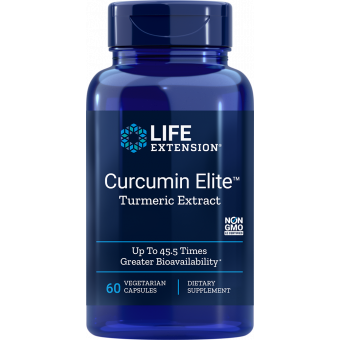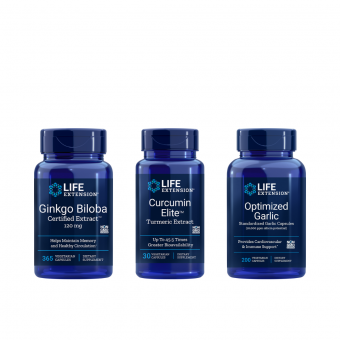Potraviny a živiny, ktoré pomáhajú predchádzať rakovine prostaty
02.10.23
0 Komentáre

Rakovina prostaty, žiaľ, patrí k ochoreniam diagnostikovaným u mužov čoraz častejšie.
Väčšina mužov, ktorí už majú rakovinové bunky v prostatickej žľaze, o tom vôbec ani nevie.
Konzumácia potravín s protirakovinovými účinkami a vyhýbanie sa potravinám, ktoré podporujú šírenie rakoviny, môže:
• znížiť riziko vzniku rakoviny prostaty,
• znížiť potrebu agresívnych terapií u pacientov s ochorením nízkeho stupňa a
• zlepšiť klinické výsledky u pacientov liečených na rakovinu prostaty.
Metaanalýza z roku 2022 zistila, že mäso, najmä spracované mäso, môže byť spojené so zvýšeným rizikom rakoviny prostaty.
Metaanalýza je typ vedeckého výstupu používaný napríklad v biomedicíne, ktorý je založený na štatistickej kombinácii výsledkov predtým publikovaných štúdií. Kvalitne vykonaná metaanalýza má oveľa vyšší stupeň vierohodnosti ako jednotlivé štúdie, pretože spája vhodným spôsobom dáta z veľkého množstva pokusných subjektov. (Wikipedia)
Ďalšia nedávna štúdia zistila, že vysoká konzumácia zeleniny a ovocia je silne spojená s ochrannými účinkami proti rakovine prostaty.
Predchádzajúce výskumy ukázali, že špecifické potraviny môžu znížiť riziko rakoviny prostaty a zlepšiť výsledky u tých, ktorí sú dôkladne sledovaní pod drobnohľadom lekárov alebo podstupujú liečbu.
Strava, živiny a rakovina prostaty
Približne jednému z ôsmich mužov počas života diagnostikujú rakovinu prostaty.
Pravidelná konzumácia určitých potravín je však spojená s nižším výskytom tohto druhu rakoviny. Zvýšením príjmu nasledujúcich potravín môžu muži výrazne znížiť riziko vzniku tohto ochorenia.
Vlašské orechy
Kŕmenie myší vlašskými orechmi inhibovalo (spomaľovalo) vývoj nádorov, ich rast a veľkosť. Znižovalo tiež hladiny IGF-1 (inzulínu podobný rastový faktor 1), proteínu spojeného s rakovinou prostaty.
Ďalší výskum na zvieratách a bunkových kultúrach ukázal, že vlašské orechy:
• inhibujú (spomaľujú) rast buniek rakoviny prostaty,
• znižujú hladiny PSA (prostatický špecifický antigén), ktoré môžu pri zvýšenej hladine indikovať rakovinu prostaty a
• zmenšujú veľkosť nádorov prostaty.
U starších mužov príjem vlašských orechov zlepšil biomarkery súvisiace so zdravím prostaty a ciev.
Hlúbová zelenina
Pozorovacia štúdia zistila, že muži, ktorý konzumujú veľa brokolice a inej hlúbovej zeleniny, ako je kapusta, špenát, karfiol a kel, majú o 40 % nižšie riziko invazívnej rakoviny prostaty.
Metaanalýza dospela k záveru, že príjem hlúbovej zeleniny je spojený s celkovým znížením rizika rakoviny prostaty.
Tieto účinky môžu byť výsledkom množstva prospešných zlúčenín v krížovej zelenine, vrátane:
• glukozinolátov,
• indol-3-karbinolu (I3C),
• 3,3'-diindolylmetánu (DIM), a
• fenetylizotiokyanátu (PEITC).
Ľanové semienko
V štúdiách na ľuďoch sa ukázalo, že príjem ľanového semena:
• znižuje proliferáciu (bujnenie) buniek rakoviny prostaty, a
• redukuje proliferáciu nádorov už za menej ako 30 dní.
Ľanové semienka obsahujú lignany, ktoré sa v tele premieňajú na zlúčeniny nazývané enterolaktóny.
Ukázalo sa, že muži s vyššími hladinami enterolaktónov majú menšiu pravdepodobnosť rakoviny prostaty ako muži s nízkou hladinou.
Paradajky
Lykopén je karotenoidný pigment, ktorý dáva paradajkám ich červenú farbu.
Systematický prehľad štúdií na bunkách a zvieratách ukázal, že lykopén znižuje metabolizmus androgénov (mužských pohlavných hormónov) a signalizáciu, čo je dôležitý faktor rastu a progresie rakoviny prostaty.
Predpokladá sa, že ďalšie protirakovinové mechanizmy lykopénu zahŕňajú inhibíciu zápalu a zníženie oxidačného stresu v tkanive prostaty.
Je známe, že lykopén inhibuje rast buniek rakoviny prostaty in vitro a vyššie hladiny v obehu sú spojené so zníženým rizikom rakoviny prostaty.
Nadpriemerná konzumácia lykopénu bola spojená s 59 % znížením rizika úmrtia na agresívne karcinómy prostaty.
Metaanalýza zistila významnú súvislosť medzi nižším rizikom rakoviny prostaty a konzumáciou paradajok, varených paradajok a paradajkovej omáčky.
Čím väčšia spotreba paradajok, tým väčšia redukcia rizika.
Ak chcete zvýšiť absorpciu lykopénu z paradajok, jedzte ich v spracovanej forme, ako je paradajková omáčka, alebo ich spracujte sami varením a konzumáciou so zdravým tukom, ako je extra panenský olivový olej.
Granátové jablko
Vo fáze II klinickej štúdie mužov s nízkorizikovou rakovinou prostaty vzorky tkaniva prostaty od tých, ktorí užívali extrakt z granátového jablka denne počas jedného roka, obsahovali výrazne nižšie hladiny biochemických markerov spojených s poškodením DNA a rakovinou prostaty.
Skoršia štúdia fázy II sa uskutočnila u mužov, ktorí podstúpili operáciu alebo ožarovanie rakoviny prostaty a následne vykazovali stúpajúce hladiny PSA.
Pacienti, ktorí denne konzumovali 240 ml šťavy z granátového jablka, mali oneskorený čas zdvojnásobenia PSA, čas potrebný na zvýšenie hladín PSA.
Predklinické údaje ukazujú, že zložky granátového jablka chránia pred viacerými aspektmi rakoviny prostaty vrátane rastu, progresie a šírenia inhibíciou (spomalením):
• proliferácie (bujnenia) nádorových buniek,
• bunkového delenia,
• invazívnosti,
• rastu nových krvných ciev a
• metastáz (šírenia).
V prehľade sa zistilo, že tri zložky granátového jablka vykazujú tieto inhibičné účinky na rast a šírenie rakoviny prostaty: luteolín, kyselina ellagová a kyselina púnová.
Bór
Štúdia zistila, že muži s najvyšším príjmom bóru vykazovali o 54 % nižšie riziko rakoviny prostaty v porovnaní s mužmi s najnižším príjmom. Okrem toho uviedli, že zvýšený príjem bóru v strave bol spojený so zníženým rizikom rakoviny prostaty v závislosti od dávky.
Na zvieracom modeli vedci orálne podávali rôzne koncentrácie roztoku obsahujúceho bór. To viedlo k zníženiu veľkosti nádoru prostaty o 25 % až 38 %. Je pozoruhodné, že hladiny PSA klesli o ohromujúcich 86 % až 89 % u zvierat, ktoré dostávali bór.
Tieto zistenia naznačujú, že doplnkový bór môže mať preventívne aj terapeutické účinky – pomáha zmenšiť nádory prostaty a znižovať hladiny PSA.
Vitamín D
Pozorovacie štúdie preukázali zníženie rizika rakoviny až o 50 % na základe vyššieho stavu vitamínu D. Ľudia s vyššími hladinami vitamínu D majú nižšie šance na smrteľnú rakovinu prostaty.
Je ťažké získať dostatok potravy z potravinových zdrojov a s vystavením slnku existujú riziká. Vedci zistili, že doplnkové dávky v rozmedzí od 5 000 IU do 8 000 IU denne môžu zvýšiť hladinu vitamínu D v krvi na optimálne rozmedzie spojené so znížením rizika chronických ochorení.
Pravidelné krvné testy sú dôležité na usmernenie úprav týchto dávok, aby sa dosiahli čo najlepšie výsledky.
Hroznové jadierka
Extrakt z hroznových jadierok indukoval apoptózu (programovanú bunkovú smrť) v bunkách rakoviny prostaty. Extrakt z hroznových jadierok inhiboval rast a progresiu rakoviny prostaty u myší.
Štúdia zistila, že muži, ktorí suplementovali extrakt z hroznových jadierok, znížili riziko rakoviny prostaty o 41 %. Navyše, vysoký 10-ročný priemer užívania extraktu z hroznových jadierok bol spojený so 62 % znížením rizika rakoviny prostaty.
Kurkumín
Kurkumín indukuje/spúšťa apoptózu (programovanú bunkovú smrť), zasahuje do šírenia rakovinových buniek a reguluje zápalové reakcie.
V jednej štúdii dostávalo 30 pacientov s rakovinou prostaty rezistentnou na kastráciu a stúpajúcim PSA kurkumín počas liečby docetaxelom a prednizónom.
Zlepšené odpovede PSA boli zaznamenané u 59 % účastníkov.
Prečítajte si viac o doplnku Curcumin Elite od Life Extension, ktorý zaručuje 270-krát lepšiu absorpciu kurkuminoidov ako štandardný kurkumín.
Ďalšie tipy týkajúce sa stravovania
• So zníženým rizikom rakoviny prostaty a úmrtím súvisiacim s rakovinou prostaty je spájaná stredomorská strava, ktorá je bohatá na strukoviny, zeleninu, ovocie a orechy.
• So zníženou agresivitou rakoviny prostaty je zasa spojený vysoký príjem vlákniny.
• Konzumácia nízkoglykemických potravín (potraviny s nízkym obsahom cukrov a nezdravých sacharidov, ako aj dostatok vlákniny, bielkovín a zdravých tukov) môže znížiť riziko rakoviny prostaty.
• Niektoré potraviny sú spájané s vyšším rizikom rakoviny prostaty, vrátane vajec, mlieka a spracovaného alebo prepečeného mäsa.
Zhrnutie
Ukázalo sa, že špecifické potraviny a nápoje sú spojené s priaznivým vplyvom na rizikové faktory a mechanizmy rakoviny prostaty.
Ak by sa vlašské orechy, hlúbová zelenina, ľanové semienko a iné rastlinné potraviny stali konzistentnou súčasťou zdravej stravy – ďalej podporované doplnkovým vitamínom D, bórom a ďalšími živinami – mohlo by to potenciálne zachrániť životy a ušetriť mužov od vedľajších účinkov konvenčnej liečby.
Zvážte obmedzenie alebo vyhýbanie sa červenému mäsu, najmä priemyselne spracovanému, aby ste ešte viac znížili riziko rakoviny prostaty a iných druhov rakoviny.
ZDROJ:
Life Extension Retail Magazine; September/October 2022, Michael Downey: Foods and Nutrients That Help Prevent Prostate Cancer, s. 54-61
Wikipedia




Zanechajte svoj komentár